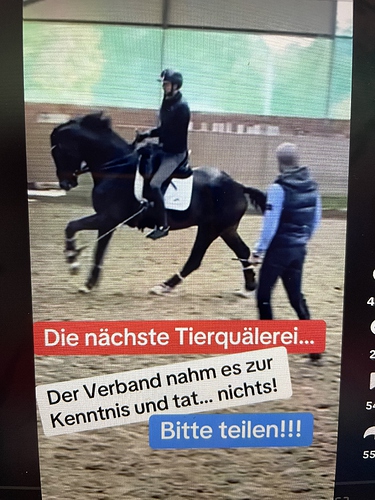Full disclosure: I don’t know enough about the “he said/she said” of how these “break ups” between Cousyn’s students and he went.
Frankly, I stopped at stories of fat shaming or somehow berating riders.
More disclosure. I have taught at brand-name universities. I won a prize or two doing that. (And, that success I attribute to horses–I had practiced teaching on those kind souls for decade before I was ever trusted with an undergraduate). I would have been fired had I shamed a student; plus, I have never, ever found that necessary. For man or beast, I assume everyone is trying their best. I know some people can’t teach, but if they blame students then they can get TF out of the profession.
And, if I may continue my rant, our industry is so badly regulated that the only way to have any say in how it goes is to vote with your feet or your wallet. IMO, too many people don’t like the ethics of their pros (sometimes with teaching, but more often with the business dealings)… and yet they pay and stay! I just won’t have that be me.
With all this background, you can see why I’m one of those consumers of horse training/teaching with high standards. That said, I’m good to teach: I am appropriately mounted. I have a reasonable amount of timing and feel. I can do as I am told on a horse. I have enough education in the horse world to understand why most good, orthodox pros are having me do as they ask me to do. If I don’t get it initially, I often figure it out as I do the exercise and the horse improves. I do my homework.
Also, I don’t think a pro should have to deal with “difficult personalities” in riders. If one pays to be taught, one should just take the lesson. And I think that teaching clinics is super hard! You have a very short time to figure out a new horse and rider, to make progress, and to do all of this in a nice, quick way, in public. Yikes!
I think there are ways for a good, invested, open-minded rider to productively collaborate with a clinician if they can see that the pro is really digging a bad hole with the horse. If you are running out of soundness or seriously running out of strength in the horse, stop and say so. Know that the pro who got farther than you with more horses than you is probably going to push you to the edge of your comfort zone; that’s why they are the BNT with their experience and success and you are not. If you don’t understand what the exercise is for, or what to reward, stop and say so. If you can’t find the thing to reward, the horse can’t either. But there’s really not a place for a rider to be anything but a trying student… just the way we want our horses to be.
I really appreciate the lighter approach to dressage that the French School brings. I think it offers a better deal to the horse and, not-for-nuthin’, recommends a way of riding that is physically easier. Cousyn is a great local resource! So some day, I hope I have the opportunity to discover that I am wrong about what I have heard about Cousyn or he has upped his pedagogical game.

 . Maybe the next Scandal… it was shared on FB last night…
. Maybe the next Scandal… it was shared on FB last night…